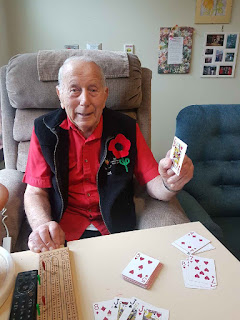We don't know what government we got - or didn't get
It’s been 65 years since there was this much uncertainty
following the results of a provincial election.
On June 12, 1952, B.C. voters used the new transferable ballot
system, and after numerous rounds of counting, a brand-new Social Credit
minority government was in place. It took weeks to determine which party won –
but at the end of all the counts, the Socreds had 19 seats and the CCF
(forerunner of the NDP) had 18.
“I don’t know what government we got. I don’t know what
government we didn’t get. I don’t know what government we are going to get,”
Barry Mather wrote in the Vancouver Sun, the day after the 1952 election.
This year isn’t much different, at least thus far. We don’t
know what government we will have after the absentee ballots are counted in two
weeks – NDP candidate Ronna-Rae Leonard won Courtenay-Comox by nine votes, BC
Liberal candidate Jim Benninger is the former commanding officer at CFB Comox,
and many members of the military almost certainly voted via absentee ballots.
We do know this. The era of big money in B.C. politics is
over. Even if the BC Liberals manage to squeak out a majority government (they
need one more seat to do so), it cannot be business as usual. Dinners with
party leaders (particularly BC Liberal leader Christy Clark) at $10,000 a plate
won’t be happening.
Green Party leader Andrew Weaver’s party holds the balance
of power right now, and he has made it clear that any support his party offers
will be very conditional on ending donations from businesses and unions. This
is something the NDP concurs with.
There will be plenty of pressure to change the electoral
system. It will be interesting to see just how that proceeds. It is a potential
deal-breaker for the Green Party, if the other two parties don’t co-operate.
There will also be plenty
of uncertainty. Even if the BC Liberals do get a majority, it will be very
tenuous. A BC Liberal speaker may be forced to break numerous tie votes. Attendance in the House will be crucial. Any vacancies that occur due to resignations or death could lead to an early election.
If a minority government is confirmed after all the counts and recounts, there will be far more uncertainty.
Business investment will be affected – business does not like
uncertainty, and neither the NDP nor Green platforms were friendly to resource
development. Site C, Kinder Morgan, and LNG are all at considerable risk. There
will be more encouragement of high-tech and alternative energy businesses, but neither
of those fields is likely to create many jobs outside Metro Vancouver and Victoria.
The NDP did very well in the Metro Vancouver area,
campaigning on helping people keep more money in their pockets. Leader John
Horgan very successfully targeted the BC Liberal government over increasing MSP
premiums, boosting BC Hydro rates, boosting ICBC rates, standing by as housing became
unaffordable for many people, charging people in Surrey, Langley and Maple
Ridge bridge tolls while giving others a free pass, ignoring the high cost and
limited availability of child care and many other issues.
That's why the NDP won North Delta, three more seats in Surrey, two in Maple Ridge (one riding there is quite close as well), one more in the Tri-City area, one more in Burnaby and one more in Vancouver and one in North Vancouver. The Green Party broke through on Vancouver Island, as expected,
and took advantage of NDP weaknesses in two ridings – notably Cowichan Valley,
where the NDP vote split after a very contentious nomination process.
There was a noticeable divide between Metro Vancouver, Vancouver
Island and the rest of the province. The NDP almost completely ignored the interior
in its campaign, and paid for it – the NDP lost two ridings they’ve held for
years, with the BC Liberals winning by comfortable margins. Metro Vancouver went
strongly for the NDP – winning almost every riding that could be pried from the
BC Liberals. Vancouver Island elected just one Liberal, but as noted,
Courtenay-Comox is still up in the air.
Clark said early Wednesday, as the final initial results were
posted, said voters “want us to do things differently” and “want us to focus on
things that matter to working people.” There will have to be more co-operation among
the parties, something that is not traditionally part of hardball B.C. politics.
Even if the BC Liberals do pull off a slim majority, the government will have
to do more to help people keep money in their pockets, and ensure that housing
is both available and affordable.
The next few months will be very interesting.



I know that I am politically naive but I wish they could work together. Our province has so much potential. With good government, we could have it made, only if the parties put aside their petty differences and concentrate on making life better for all British Columbians.
ReplyDelete